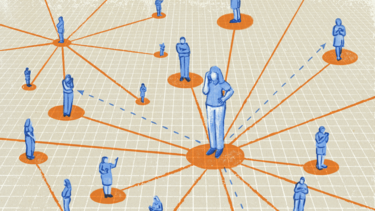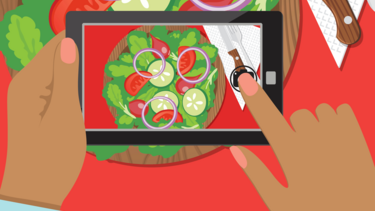Marketing
How a New Approach to Store Brands Helped Natural and Organic Foods Go Mainstream
As Whole Foods expanded in the 1990s, Denis Ring ’84 took on the challenge of developing the grocery chain’s 365 brand. Wooing shoppers with joyful design and affordable prices, he harnessed the power of private labels to expand the scale of organic and all-natural foods.

Connecting with the Consumer in a Distracted Age
Todd Kaplan ’06, CMO of Kraft Heinz, has redesigned the company’s creative process to deliver “marketing that happens.”

When People Turn On the TV, Are They Actually Watching?
A study of baseball telecasts co-authored by Yale SOM’s Kosuke Uetake suggests that relatively few viewers actively look at the screen. Viewers perk up during suspenseful moments, suggesting that changes to advertising or even the structure of baseball games could make ads more effective.

How Should Companies Talk About Tariff-Driven Price Hikes?
We asked Yale SOM marketing expert Nathan Novemsky how firms can best communicate with customers about changes forced by the Trump tariffs.

Your Friends Have More Friends Than You—and That’s a Good Thing for Marketers and Public Health Officials
In a new study, Professor Vineet Kumar and his co-authors offer two ways to seed interventions in social networks based on the “friendship paradox.”

When Do Ads Become Too Deceptive?
Yale SOM’s Deborah Small and her co-authors examine how people judge the ethical acceptability of ads for charities, and find that they are much more bothered by artificiality than objectification or exaggeration—a finding with implications for advertisers of all kinds.

The Secret of the Barbie Movie’s Marketing Success
Barbie is a genuine phenomenon, reaching $1 billion in worldwide box office in only three weeks on the strength of legions of pink-clad moviegoers. We asked Yale SOM’s Zoe Chance, a former Mattel brand manager, about the movie’s marketing and message.

Can You Make a Donation Today—and Tell All Your Friends?
Sharing information about our charitable donations can multiply their impact. Prof. Deborah Small tested whether reframing why a donor should disclose a gift can help encourage them to spread the good news.

What Does It Mean to Be Generous?
Deborah Small, Adrian C. Israel Professor of Marketing, explores how we make choices that affect our own and others’ welfare and what leaders need to understand about behavioral marketing to expand social impact.

When Counting Calories, Words Are More Valuable than Pictures
A new study co-authored by Yale SOM’s Gal Zauberman finds that apps that track calories with a photo are appealing, but manually logging your meals is actually more effective. The results offer a cautionary tale about giving consumers what they think they want, he says.

How Does Inflation Change Consumer Behavior?
Inflation has put consumers in an anxious, angry mood, even as the economic data shows confounding bright spots. We asked Yale SOM’s Ravi Dhar how the perception of rising prices affects buying behavior, and how companies can respond.
